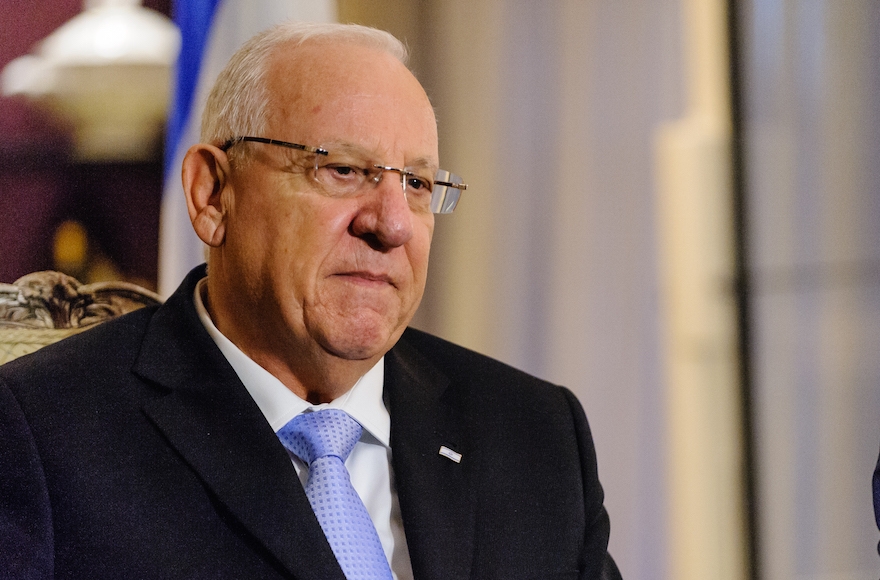JERUSALEM (JTA) — Israeli President Reuven Rivlin reportedly said that a new law that retroactively legalizes settler homes built on private Palestinian land could make Israel look like an “apartheid state.”
Rivlin made the comments during a closed-door meeting last week, two days after the “regulation law” was passed by the Knesset, the Israeli daily Haaretz reported Sunday.
“Israel has adopted international law. It does not allow a country acting according to it to apply and enforce its laws on territories that are not under its sovereignty. If it does so, it is a legal cacophony. It will cause Israel to be seen as an apartheid state, which it is not,” Rivlin said, according to Haaretz.
“There is no question here. The government of Israel is simply not allowed to apply the laws of the Knesset on territories that are not under the state’s sovereignty.”
The regulation law, which the Knesset passed in a raucous late-night session on Feb. 6, allows the state to seize private Palestinian land on which settlements or outposts were built, as long as the settlers were not aware of the status of the land. In cases where the landowners are known, they are entitled to compensation.
The pro-settlement Jewish Home party first put forward the regulation law in an effort to save the West Bank outpost of Amona, built without government authorization on private Palestinian land, from a High Court-ordered demolition. But the clause that would have circumvented the court ruling was nixed following coalition infighting, and Amona was evacuated and demolished earlier this month.
Even without the Amona clause, Israel’s attorney general, Avichai Mandelblit, has said he would not defend the law before the Supreme Court. It was the first time that an Israeli attorney general has made such a refusal, legal experts have told JTA.
JTA has documented Jewish history in real-time for over a century. Keep our journalism strong by joining us in supporting independent, award-winning reporting.






